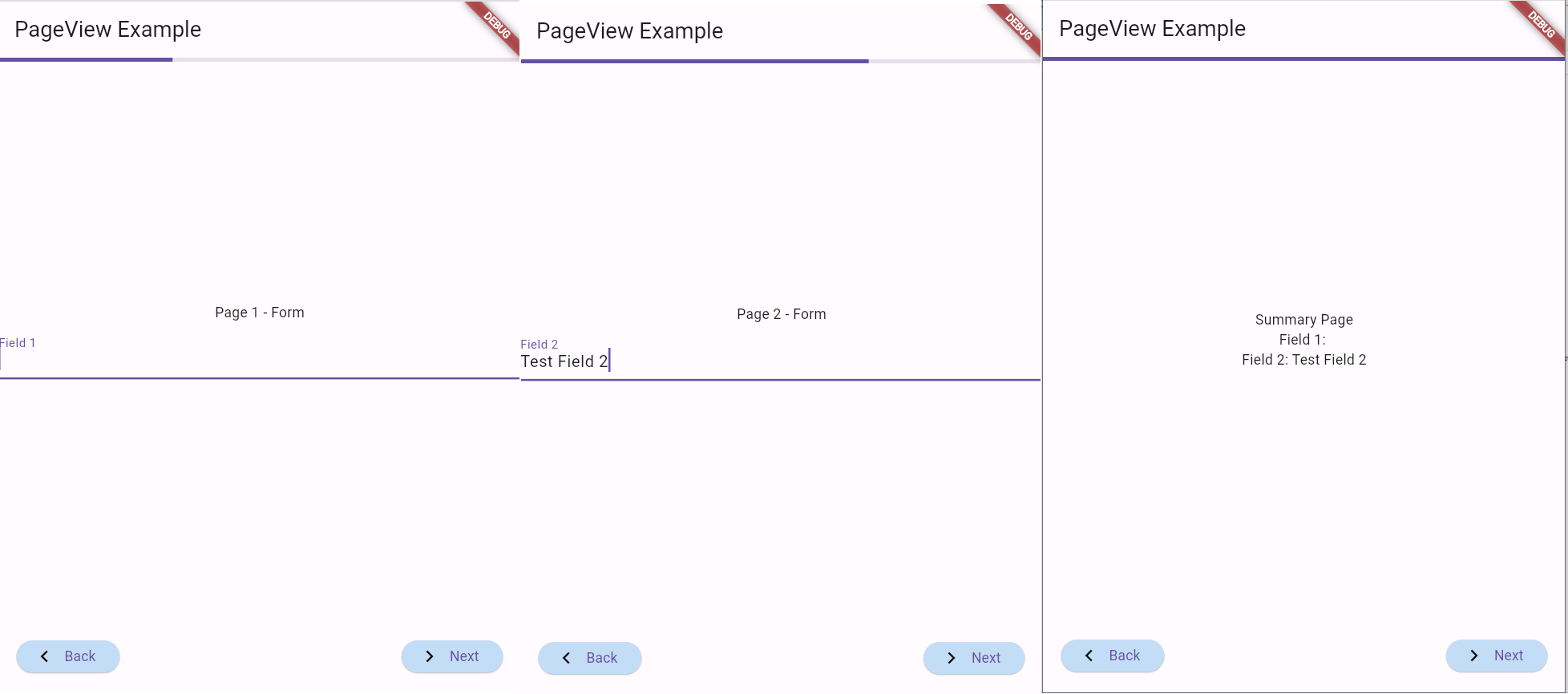I have a problem to keep the value of my Texfield field when I return to one of my pages of my form.
I’m using the components PageController with PageView.
I wrote a simple exemple to explain.
It’s not optimized but it’s enough to explain my problem.
I have 3 pages. The first two pages are a form containing a Textfield component.
The last page is a summary.
The appBar and bottomNavigationBar components are cross-functional components.
Use case of the problem :
When I click on the button "Next" it works, the value on my differents fields are saved in a object "FormData".
BUT, my problem is, when I click on previous button.
I lose the value I entered in my field although it is still in my formData object
Here the body :
@override
Widget build(BuildContext context) {
return Scaffold(
appBar: AppBar(
title: Text('PageView Example'),
),
body: Column(
children: [
linearProgressIndicator(),
Expanded(
child: PageView(
controller: _pageController,
children: <Widget>[
FormPage1(),
FormPage2(),
SummaryPage(),
],
),
),
],
),
bottomNavigationBar: bottomBarWidget(),
);
}
The code of the buttons :
void _navigateToNextPage() {
if (_pageController.page!.round() < 2) {
_pageController.nextPage(
duration: Duration(milliseconds: 500), curve: Curves.easeInOut);
}
}
void _navigateToPreviousPage() {
if (_pageController.page!.round() > 0) {
_pageController.previousPage(
duration: Duration(milliseconds: 500), curve: Curves.easeInOut);
}
}
The code of FormPage
class FormData extends ChangeNotifier {
String? field1;
String? field2;
}
class FormPage1 extends StatelessWidget {
TextEditingController controllerTitle = TextEditingController();
@override
Widget build(BuildContext context) {
var formData = Provider.of<FormData>(context);
return Scaffold(
body: Center(
child: Column(
mainAxisAlignment: MainAxisAlignment.center,
children: <Widget>[
Text('Page 1 - Form'),
TextField(
controller: controllerTitle,
onChanged: (value) {
formData.field1 = value;
},
decoration: InputDecoration(labelText: 'Field 1'),
),
],
),
),
);
}
}
The SummaryPage
class SummaryPage extends StatelessWidget {
@override
Widget build(BuildContext context) {
var formData = Provider.of<FormData>(context);
return Center(
child: Column(
mainAxisAlignment: MainAxisAlignment.center,
children: <Widget>[
Text('Summary Page'),
Text('Field 1: ${formData.field1 ?? ""}'),
Text('Field 2: ${formData.field2 ?? ""}'),
],
),
);
}
}





2
Answers
Adding the property "initialValue:" I get an ERROR :
So I added in the first component my formData : var formData = Provider.of(context); I don't know if it's a right way to do it but it's work.
try to initialize
TextFormField‘s Controller with an empty string and set theinitialValueof the form field tocontroller.text.ex:
that rebuilds your pages on call without losing previously entered data.
note: the above code is not a customized implementation of text field, mainly it’s a stateful, but it’s a short way to explain my opinion.